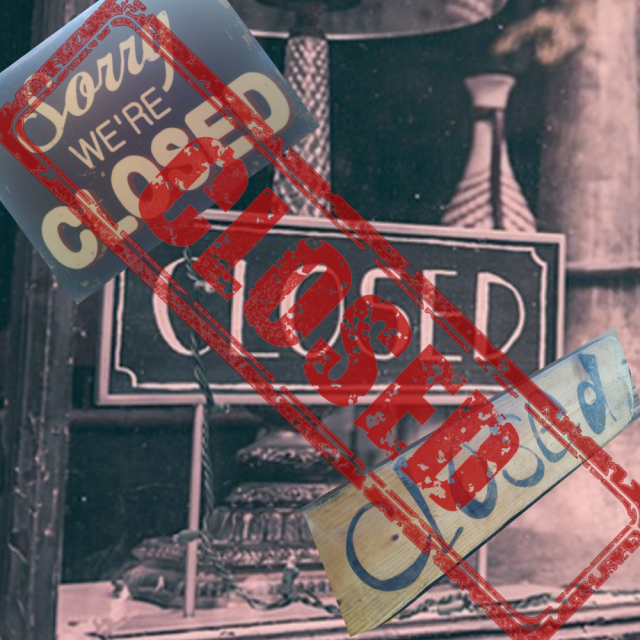
Holiday Shopping Guide for Your Writer
If you’re shopping in Tulsa, check out Decopolis in downtown. They have writer themed candles; little plush dolls of Poe, Shakespeare, and more; journals; feather quill sets…. you can make all your writer friends happy by stopping by there!
(NOT A COMPENSATED COMMENT – I JUST LOVE THEM THAT MUCH)
The A-Zs of World-Building with Rebekah Loper
One of the keys to writing a story that draws in readers is building a world that is believable, intriguing, compelling…a world that drives plot forward when the character finds herself in opposition to the way things normally go. And a pal of the Purple Inkers, Rebekah Loper, is pretty much an expert in world-building. We talked to her about why she loves inventing worlds in her head and then putting them down on paper for readers, her background in fantasy and sci-fi, and her new book, The A-Zs of Worldbuilding.
1. Tell us a little about your background. How did you become interested in fantasy stories? What books and movies have influenced your storytelling?

Author Rebekah Loper
The next set of stories that I remember impacting my sense of storytelling is a little-known series called The Bracken Trilogy by Jeri Massi. In many ways, it dealt with more mature themes than Narnia did. I remember reaching the end of the trilogy, and something about how one of the main characters simply died of old age really resonated with me. Seeing that heroic characters don’t always have what we perceive to be heroic endings made fantasy very attainable to me. It made heroes suddenly human. The protagonists were all mostly female — young girls, teenage girls, and mothers, and mature women. This series may have also sparked my interest in herbalism.
2. What are a few of your favorite fantasy stories?
3. When you think of a story that has fantastic world building elements, which story do you think of, and why?
4. What is it about world building that you love the most?
5. What made you decide to write a book about the process of world-building?
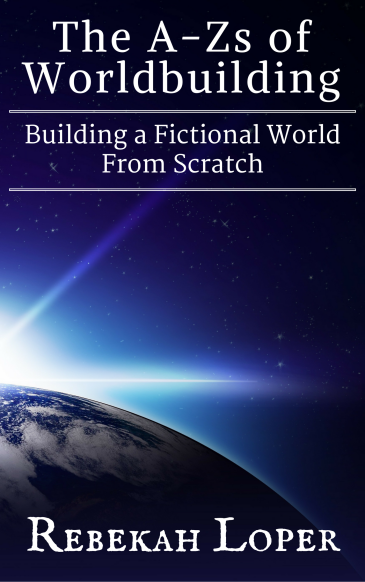 Well, I first did the A-Zs of World-building for the A-Z Blogging Challenge a few years ago. It had a much higher response than I expected, and so many writers told me it was fascinating to see how I could just jump from one thing to another and connect dots the way I did. For me, it’s a very intuitive process, but many people don’t know how to think like that.
Well, I first did the A-Zs of World-building for the A-Z Blogging Challenge a few years ago. It had a much higher response than I expected, and so many writers told me it was fascinating to see how I could just jump from one thing to another and connect dots the way I did. For me, it’s a very intuitive process, but many people don’t know how to think like that.
6. How did you come up with the exercises in your book?
7. How does working on world building add to a novel’s effectiveness? How does it help a writer to make their work better?
8. Is there anything in your book that writers won’t find elsewhere?
9. How can writers get a copy of your book?
About the Book:
Worldbuilding is the ultimate act of creation for speculative fiction writers, but how exactly do you worldbuild? You ask ‘what if’ and use each answer as a springboard to more questions and answers about your fictional world.
In The A-Zs of Worldbuilding, that ‘what if’ process is broken down into 26 themed chapters, covering topics ranging from architecture to zoology. Each chapter includes a corresponding set of guided exercises to help you find the ‘what if’ questions relevant to your story’s world.
Fair warning, though: worldbuilding is addictive. Once you get started, you might never put your pen down again.
About the Author:
Rebekah Loper loves to create worlds — whether they are magical and fictional, or a productive farm in her suburban backyard where she makes futile attempts to curse Bermuda grass from all existence.
Rebekah lives in Tulsa, Oklahoma with her husband, dog, formerly feral cat, a flock of chickens, and an extensive tea collection. She blogs at rebekahloper.com, and is also a contributing blogger at Fantasy-Faction.com and The Rabid Rainbow Ferret Society (fictionalferrets.wordpress.com).
This is not a feminist rant… but please don’t ask me to smile.
I am not about to talk about how it is not in fact a woman’s job to look pretty for you, she doesn’t owe you a smile, and how she doesn’t care how much prettier she’d look if she were smiling (though I adamantly agree with and support those statements).
No, I’m just going to talk about the last time it happened to me.
Here’s the thing. I went to a Starbucks. I used the mobile ap to order a drink and a ‘snack box.’ When I got there, the barista said, “I’ve got bad news – we’re out of the snack box you wanted. The good news is you can have anything else you want.” Important note – I wasn’t upset by this. I didn’t have my heart set on the specific snack box I’d wanted (boiled eggs, some fruit, some peanut butter), I just wanted a snack. So I grabbed a cheese and fruit snack box instead and was perfectly happy with that.
We went over to the register so he could make the exchange and then he offered me a $4 ‘recovery card’ off my next visit. Cool! Now I’m actually pretty happy about the whole situation.
I noticed a tray of bite sized portions of some chocolate baked good and asked about it. He told me (double chocolate pound cake) and said they were offering samples and I could have one. Super cool!

God, no, I’m NOT mad. I’m fine. Everything’s FINE.
At this exact moment, if you had asked me, I would have said I was smiling. At any rate, I felt confident I had perfectly pleasant expression on my face. I wasn’t sad or mad. Nothing I had said or done would have indicated I was unhappy in any way.
Important note – I could have been this kid’s mom. Important follow up note – I am not what most people would call conventionally attractive. I mention this because I’m pretty confident he was not flirting with me. I mean, anything’s possible, but… probably not.
And then he said, “The only price is a smile.” And I reflexively smiled (dammit).
Then I went to my table, watched some Netflix, ate my snackbox (cheese and fruit and crackers. Yum), drank my tea, and nibbled on the sample of cake (super tasty!).
And instead of enjoying my Netflix, all I could think about was why he asked me to smile.
When I got to my friend’s, I asked them “Do I look like I’m pissed off all the time?” I mean, I know I have resting bitch face. It’s a chronic, long term condition for me, but still. (the answers were “no, yes, and ‘only when you look at me,’).
Two days later, I’m still bothered by it. I mean… seriously… resting bitch face. I have it. But he asked me to smile at a moment that I thought I was smiling. Dammit.
So just don’t do that. Don’t do it for all the feminist reasons you’ve ever heard, but also don’t do it because it made me feel bad for at least two days because I wish I had a happy smiley face and I don’t and thanks for reminding me that I look mad all the time and that probably drives people away.
… shit, I wonder if that’s part of why do many people say I’m intimidating.
Anyway, please don’t ask a woman a smile, ok?

Is this better?
The Do-Over
I believe there are an infinite number of times you can start over and I also believe we aren’t told that enough.
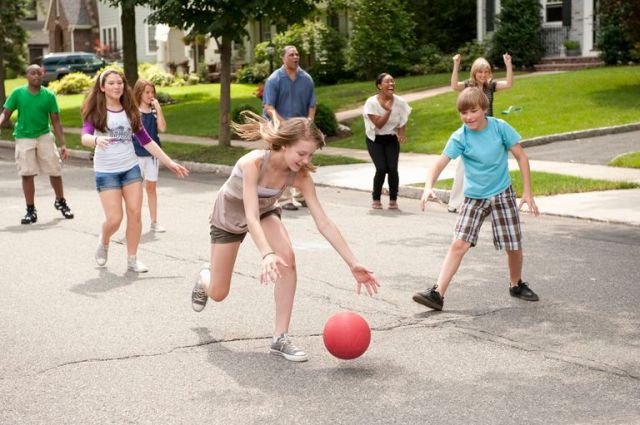
When we were kids we were all well acquainted with the “do-over.” We used the words as a noun and all of us knew exactly what it meant. Simply put, it meant the event was an outlier and there would be no consequences for failure.
If the kick ball got stuck in the tree branches, we all just yelled out, “do-over,” and the ball was retrieved and the kicker got another chance. We didn’t take the ball getting stuck in the tree as any real reflection of the players ability nor did we think the game needed to be disrupted because of this one moment.
We all had such wisdom back then.
But then someone always came along who wanted to discredit the “do-over.”
This test is not a do-over!
You can’t just have a do-over whenever something doesn’t work out!
You have damaged our relationship and I won’t let you have a do-over!
This is real life! There are no do-over’s!
Bullshit.
I argue that in every situation there is an opportunity for a do-over. Remember, a do-over was an outlier, something that was not deliberate and hey, a lot of stuff just happens.
I’m not talking about the kid who tries to throw the ball when its kick ball or picks it up and runs with it to keep it away from others. A do-over has nothing to do with the person who runs and gets the adult when they feel they are being slighted by the rules or the neighbor who gleefully takes the ball when it lands in their yard and won’t give it back.
A do-over is just one of those things that happens now and again.
Here are a few examples from my own life when I should have acknowledged the “do-over” potential,….
My husband who is wonderful and loves me dearly, has a busy month and forgets my birthday.
My son, who works and goes to school, knocks over an open bottle of laundry soap as he rushes to get to class.
My mother, who promised me we would do lunch, makes plans with others instead.
My good friend borrows my platter and breaks it.
To my utter dismay I admit after I got over the initial anger, I held grudges and often brought up the issue to the other person involved. I did not acknowledge the “do-over” potential.
Jobs can be “do-overs,” and I have had some of those also. Granted those are tougher not only to recognize, but to get over because it’s all tied up with money or status or identity or pride.
I had a job once that I really didn’t like, but I was fortunate to have a boss who believed in the power of the “do-over.” She asked me if I even liked the job as she was going over how badly I was doing the job. I showed some uncommon good sense and told her point blank I hated it and then we both agreed it was best to part ways. But she recognized the skills I had were simply not meshing with the job and she ended up giving me a great recommendation which helped me move onto a new job that I love.
That is still one of my most beloved “do-over” moments.
There should be more relationship “do-overs.” Every had the lover that you just all the sudden didn’t love anymore.Don’t you wish you could just yell, “Do-over!” and then you could both agree to never see each other again with no hard feelings. Or the friendship when both of you realize you really only share one interest together and now that the Chopped – Barbecue-Cheese-Kids- Championship Marathon is over, you could apply the “do-over” principle, no harm done.
There are some who say the whole experience of life can also be a “do-over.”
If you don’t get it right this time around, don’t worry you will get another chance to try again. 
My plea to you, dear friend, is to look out on your life today and everyday and recognize your “do-over” moments.
Laugh while you run to get that ball down from the tree and feel the joy of the moment when you kick it back into play.

Taylor Swift’s Brilliant Take on Double Knavery
Good morning, all!
I’ve been binge watching Taylor Swift’s new video, Look What You Made Me Do, and sure I’m not alone in drawing some Shakespearian parallels.
Like many of you, after seeing the video, I immediately exclaimed, “Iago! There you are, you little mischief maker, you!”
For those of you poor unfortunate souls who have not had time yet to read all of Will’s work- a brief note on who Iago is….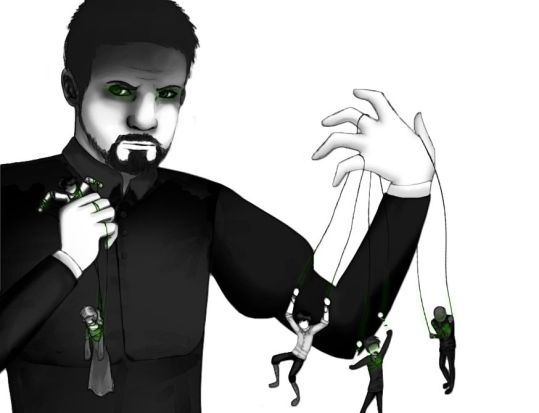
Iago is the villain in the play Othello and he’s a great villain. He’s creepy and smart and vicious and he’s always speaking to the audience as if we are his squad. And he owns his own evil which makes him one of the best villains of all time.
Very early on he says flat out, “I hate the Moor.” He doesn’t say, “I’m upset by the Moor or I strongly dislike the Moor or I’m feeling some negativity related to the Moor.”
No, no! Not our man, Iago.

So he decides to destroy his enemy and several others along the way.
(The rest of the play is wonderful, but you can find that out on your own, so I won’t tarry around in the explanations of sub plots and motivations. Yes, I used the word, tarry- get over it.)
Very early on in the video, Ms. Swift, sings, “And I don’t like you.” The words may not be as tough as Iago’s, but the graveyard imagery speaks more of hate than dislike.
And then when she’s sitting on that throne of snakes! Wow!
Doesn’t that just scream, “How am I a villain?”
That scene in the video is Taylor-made(get it 🙂 ) for Iago’s wonderful soliquiqy where he mockingly asks his Elizbethan Squad how he can possibly be a bad guy for trying to give some honest advice to a friend. Well, maybe because sometimes something really bad happens as the result of good intentions.
The Divinity of Hell.
I love it!
Another one of my favorite lines in the song is, “one thing’s for sure, maybe I got mine, but you’ll all get yours.” Again, just like Iago’s sentiments when he gets passed over for promotion by Othello. Sure he’s angry and jealous and embarrassed, but he is damn sure not going to be the only one who suffers, not while he’s still around.
And finally, my absolutely favorite part of the video…..the tower of Taylor Swift images being flattened by Taylor Swift herself as she lyrically declares that she trusts no one as they feel the same about her AND she is going to be the nightmare to her enemies.
about her AND she is going to be the nightmare to her enemies.
Or as Iago would put it,
“I will wear my heart upon my sleeve for daws to peck at; I am not what I am.” (Act I, Scene I, lines 64-65)
Well done, Ms. Swift, very, very, well done!

My St. Helena
 Napoleon Bonapart was exiled twice in his lifetime.
Napoleon Bonapart was exiled twice in his lifetime.
The first time to Elba, an island in the Mediterranean, where he seemed to have a pretty nice time. He was still afforded the prestige he was used to, his home was maybe not a palace, but still some very nice digs and he made time lying around eating fresh cherries with one of the local girls in addition to spending time with his mistress. Napolean stayed on Elba less than a year before he went back to France and messed up even more.
It was called Waterloo and it prompted the British to exile him to the remote island of St. Helena, an island in the South Atlantic, which is still one of the most remote, hard to get to places in the world. And in our age of globalization, that’s no small feat.
So there he was on this tiny rock of an island in the middle of vast ocean. I imagine him walking around on the cliffs, looking out at the expanse of water surrounding him and knowing he would die there.
But maybe he felt like he was already dead.
From the pictures I have seen St. Helena seems very like a purgatory type of place. Craggy, windy, moldy, steep, quiet, lonely, isolated, hard to reach…are just some of the words used to describe it.
For a man so used to intrigue and power, how devastating.
We don’t have to wonder or speculate on his state of mind, as so much has been written about the feisty French emperor. He detested St. Helena Island.
Exile– the state or period of forced or voluntary absence from one’s home or country.
My Facebook account has not been active for several months now. I have left all of my volunteer commitments. My phone now only serves to keep the time or occasionally check the weather forecast. My contact list has been pared down to emergency only numbers.
I still go to work every day. I shop and cook and clean my house. I read copiously and write on the computer or with soft pencils. I watch and wave from the dock as my family and friends venture out, each to their own battles and adventures. And then when they return I greet them with either trumpets or gauze.
At first it was hard, this self imposed exile, but it was needed. Exhausted after too many Waterloo’s where I had not been Wellington I felt a bittersweet relief as I stood on the sandy beach.
I do not detest my island.
I embrace my silence and my exile.
I walk my craggy cliffs and look out at the vast ocean around me and I am thankful for my St. Helena.
Can You Give a Compliment?
Have you ever made a man angry by accepting a compliment with confidence instead of demure, shy embarrassment or shock?
Yeah, this really is a thing. You can read about it in this fascinating BuzzFeed article, which goes into plenty of examples of various men getting pissed off when a woman says “thanks” or “I agree” instead of “oh my god, you’ve changed my life” after a simple compliment. You can probably come up with examples of your own.
For me personally, when people say I’m really smart, I say, “Yes I am,” because I’ve known that since I was 5. It’s not the most interesting thing about me, and it’s certainly not the number one thing I care about. People’s reactions when I say “Yes I am” tend to fall in one of two camps:
(1) They’re cool with it because they don’t take it personally that I’m smart, perhaps smarter than them. They see the real me and like me.
(2) They get hostile or have a need to prove their own intelligence, which means they both resent my intelligence and don’t actually know me, because I’m not a person who holds my IQ over anyone’s head. No one has to prove they can match wits with me. I wouldn’t even mention intelligence except that it fits this blog post.
But the real point is… you can learn a whole lot about how other people see themselves and the world by how they react when you respond to something they say.
It’s All About Power
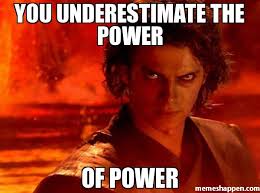 We live in a culture where so much is about power, in so many ways. It’s an insidious problem not just because it’s so entrenched in everything we do, but because it can’t be eradicated until we learn to see power differently than the entrenched cultural norms teach us to do.
We live in a culture where so much is about power, in so many ways. It’s an insidious problem not just because it’s so entrenched in everything we do, but because it can’t be eradicated until we learn to see power differently than the entrenched cultural norms teach us to do.
You see, there are essentially two ways to seek out power for yourself:
- You can seek it outside of yourself.
- You can find it within yourself.
Let me tell you from experience as a person who used to care a lot about what other people thought about me, and had to learn to let go of defining my self-worth in terms of what others think: It is an exhausting and futile way to be in this world if all you do is let other people determine how much agency and self-respect you have.
Your sense of being grounded and unmovable by the fickleness of day-to-day living has to come from a sense of having your own roots growing into the ground. Just like a tree, seriously. The tree’s roots come from itself so it can ground itself and create stability for itself. It doesn’t get roots from other trees, though some trees can gather together and strengthen each other, like palms do. Their roots grow together and create new trees. But the fact remains, each palm tree has its own roots too. You’ve got to build your own roots. Otherwise, you’ll be pushed around by every wind that blows up around you, and you’ll constantly feel unsettled and miserable.
How Power Struggles Screw Up Our Interactions
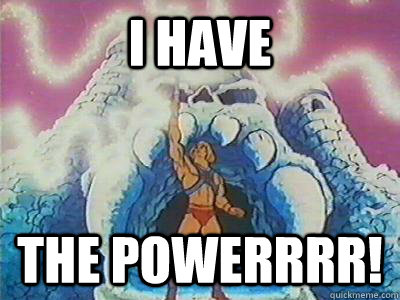 Where you seek power (from outside or from within) is a key issue in so many power abuses and wrong-headed social interactions that plague our society. Imagine this:
Where you seek power (from outside or from within) is a key issue in so many power abuses and wrong-headed social interactions that plague our society. Imagine this:
You don’t feel powerful. You believe — because it’s how you have been taught, it’s what you learned on the playground — that your power, prestige, self-respect, confidence all depend on whether others approve of you and interact with you in ways that confirm your power. In this scenario, literally everyone else has some say in how much power you have. People more powerful than you can make or break you by accepting you or rejecting you. People less powerful can bow to your power, confirming your power. Or they can resist, shaming you and forcing you to shame them worse to restore your power.
This explains bullying, mean girls, narcissistic personality disorder, abusive behavior, road rage and so much more, doesn’t it? Even at a young age, kids are doing this to each other on the playground. The boy who is considered the leader can bring another boy into the crowd, giving him social acceptance, or he can declare the other boy the subject of ridicule, and suddenly the other boy is a reject. Other kids follow suit because they don’t want to be outcast too. Girls do this too. Boys do it to boys, and they do it to girls. Girls do it to girls, and they do it to boys. It infuses everything we do as we grow up unless we break the cycle.
What an exhausting way to live. But so many people live that way, because they haven’t learned another way.
So Break the Cycle, for Crying Out Loud
The other option for finding your sense of power is to realize that you exist in this world with a degree of self-agency or strength that comes from within, regardless of what happens outside you. At the least, you get to choose how you will react to what happens. And that means a lot, much more than many people realize.
Consider the a**hole who flips you off as he drives past you, shouting at you even though you haven’t done anything except to not meet his expectations, whatever they are. That guy can ruin your day if you choose to let it. Or you can choose to recognize that his problem is his problem…that he was angry long before he passed you on the road and he’ll be angry long afterwards, and you were simply a convenient target for him to justify continuing to be angry instead of dealing with his anger like a grownup.
In fact, this is essentially what is happening when a women gets a compliment, says thank you (which is polite, yes?), and is then judged or attacked for saying thank you. It’s like a drive-by road rage incident, and had nothing to do with her. Some women understand this, and they just keep trucking along happily, which is the right response. (Though it is definitely tiring to have it happen to you day in and day out.)
When a Compliment Is Not Actually a Compliment

Great article from a woman’s perspective about learning to say thank you
When you see a man giving a woman a compliment and then taking it back because she agrees with what is being said, it was never actually a compliment to begin with, was it? It was never meant as a genuine expression of admiration and appreciation and respect. Instead, the comment was born out of anger, resentment, jealousy… It was born out of a feeling of powerlessness that the guy is trying to resolve by asking someone to feel more powerless in his presence and to acknowledge that he has more power, even if only a little bit. When that script doesn’t get followed, the rage comes to the surface instead of bubbling below it, because he feels it is being confirmed that he doesn’t have power.
And because the rage comes to the surface and gets expressed, it feels like what it is — a form of abusiveness. Because when you give a compliment to someone only to get a specific reaction from them that meets your needs, not theirs, you’re acting in a way that is clouded by your own distortions of life. You’re thinking about you, not the other person. You want to receive something, and you feel like you have to manipulate someone else to get it. That’s abusive. It’s passive aggressive. People don’t like this, for obvious reasons.
The solution is pretty simple, really. And it applies to both men and women, and to more scenarios than just this issue of accepting and giving compliments:
Learn how to find your sense of power, confidence, strength and respect from within yourself, and how you see yourself, not in how other people see you, speak to you or react to you. You don’t have to wait on anyone else to confirm or deny you are worth something. You you don’t have to agree with them when they tell you that you aren’t worth anything. And you can learn to deal with frustrations without hurting other people.
Oh, I know, I know… I could go on about toxic masculinity, or the patriarchy. I could explain that it’s #notallmen, though it’s certainly a #lotofmen, more than it should be. I could talk about how this problem hurts men as well as women. I could talk about all kinds of things. But ultimately, changes like this have to happen inside each person as they make the decision to stop giving their power over to the reactions and responses of others.
Now imagine this: You say to someone, “Hey I like this thing about you.” And they say, “Yeah, so do I.” And so you say, “Awesome! We have something in common. Let’s keep talking.”
Not a bad alternative, to say the least.
PS. If you like talking or thinking about stuff like this, go listen to Collective Snark’s podcast episode on How to Talk to Girls, and Guys, and Anyone in Between. It’s good stuff.
The spoils of the library book sale.
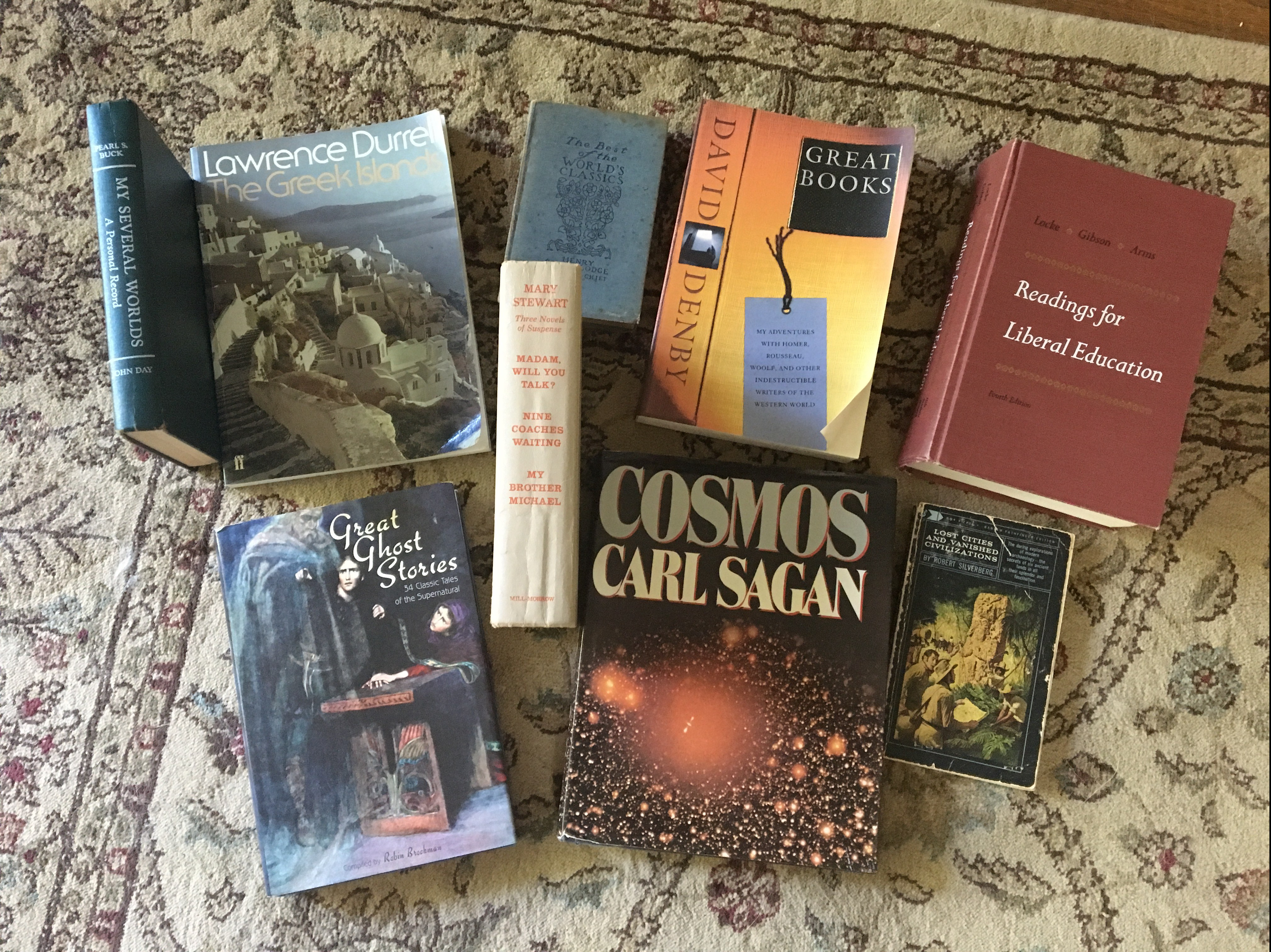
I do think at times I have some psychic moments.
Since Thursday I have been thinking about this one library that I never go to. I think I have been there once or twice maybe in the last several years, but only to run over a pick up a book they held for me, never having the time to browse around. It’s just not in my neck of the woods, so to speak.
But anyway, anyway….so, I had been thinking about it and since my hubby and both sons were out of town on Saturday, I took my mom out to this library on a whim. But there, dropped across the front doors was a sign from the Universe!
It read, Library Book Sale!
Cue chorus of angels!!
Library book sales are the best!
All paperbacks fifty cents, hard covers, $1.00 and large hard covers, $2.00. And at this sale you had a very active and helpful “Friends of the Library,” volunteer staff who said all kinds of wonderful things such as, “Can I help you find something? Could I take those for you so you don’t have to carry them around? Would you like them in a large box or bags?”
That last statement will mean a lot to those like me who clear out trunks and bring wheelbarrows to events such as this.
My entire bill was twelve dollars. Twelve dollars!
I worked that sale like the professional I am.
Step One – seek out the miscellaneous box. This box has all the books which don’t fit in a specific category. Many novices pass over it because they don’t want to dig through, but you run the risk of missing some real gems. In the miscellaneous box I found a beautiful Funk & Wagnalls, copyright 1909, Best of the World’s Classics, edited by Henry Cabot Lodge book. I’m not a “how-much-is-it-worth-person,” but I do know that this small book is pretty hard to find and will be a great addition to my classics collection. 
Step Two – look for the books you always wanted to get, but never did. I loved watching the original Carl Sagan Cosmos series on PBS all those years ago and I always thought I would buy the book, but it just never happened. I got it yesterday for $2.00. 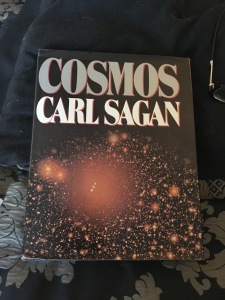
Step Three – access Goodreads. I used to think this was cheating, because part of the fun was discovering a new author on your own, but now…well, money is harder to come by and I have grown reclutant to go exploring on my own. The lovely community of Goodreads convinced me to purchase, My Several Worlds, by Pearl S. Buck.
Step Four– the travel box. So much of the travel box is filled with out of date Michelin guide books, snooze! But if you root around in there you can find some wonderful stuff. I always look for the travel books written in the fifties and sixties. The war had ended and a lot of people had the cash for travel, so the travel books have lots of lovely photos and the prose is meant to entice.
Step Five- get a little shallow and go for looks. Let’s face it, some books are just more attractive than others. And the library book sale is probably one of the only times you can justify buying for looks only. My mother got some wonderful needlepoint books which are stunning and I got a lovely book of ghost stories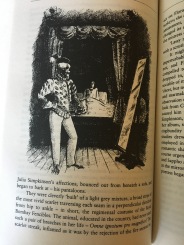 with hands-down some of best illustrations I have seen in years.
with hands-down some of best illustrations I have seen in years.
Step Six– text books. I love old text books because of the marginalia. Whenever I see a text book shelf I first look for the subject matter which appeals to me. I will be passing on the chemical engineering and the geology, but I love to look in the humanities sections. Then I thumb through and look for the notes. This may be some kind of phychosis, but I love to see what others have written to themselves in textbooks. Yesterday I found a wonderful book, Reading for a Liberal Education, which is filled with notes and some kind of mysterious short hand. 
Step Seven – talk to the other shoppers. Some book sale shoppers are out for blood. You know who you are. But most are wonderful and willing to swap and help you look if you help them. For example, “Excuse me, I see you have a lot of mysteries there, well, I just saw a wonderful book of Ed Gorey art in the miscellaneous box, if you are interested,” or “I’m sorry, but I can’t help, but notice you have the only copy of The Hitchhikers Guide to the Galaxy, would you be willing to trade for my hardback Isaac Asimov Collected Works?”
Ah the Library Book Sale!
Good times….good times….
The Alchemy of a Story
What makes a good book a great book?
A question that has been debated by far more brilliant minds than mine. But what the heck! Let’s pour out some more tea, pull up a chair and see what we come up with.
I just finished reading two books –
“Murder Most Austen” by Tracy Kiely and “The Razor’s Edge” by W. Somerset Maugham.
They were both good books, but only Maugham’s was a great book. But before you go all I-knew-you-were-going-to-say-that, let me just take a moment to say why.
The Kiely book was everything it said it was going to be. It was fun and charming and it took me away to The Jane Austen Festival in Bath, where I have always wanted to go. The author kept me interested in the story and her descriptions were well written enough to where I felt the experience of the festival, as much as the heroine. This book helped me accomplish a goal. It had aided in my escape from the realities of an almost fifty-year old working mother.
But it didn’t make me….feel.
Maugham did that. In his meandering, lengthy character study, with no great plot twists, he somehow poked a hole in me and I felt. When I closed the book last night, I lay in my bed with the melancholy of a trip ended, a passage closed. Larry, Isabel, Sophie, Eliot, they were truly gone and I felt such an emptiness. But they were never real people. They were only words on a page…letters strung together.
Words and letters only….words and letters that made me feel.
How is that possible?
I can’t even being to contemplate.
But isn’t it amazing.

